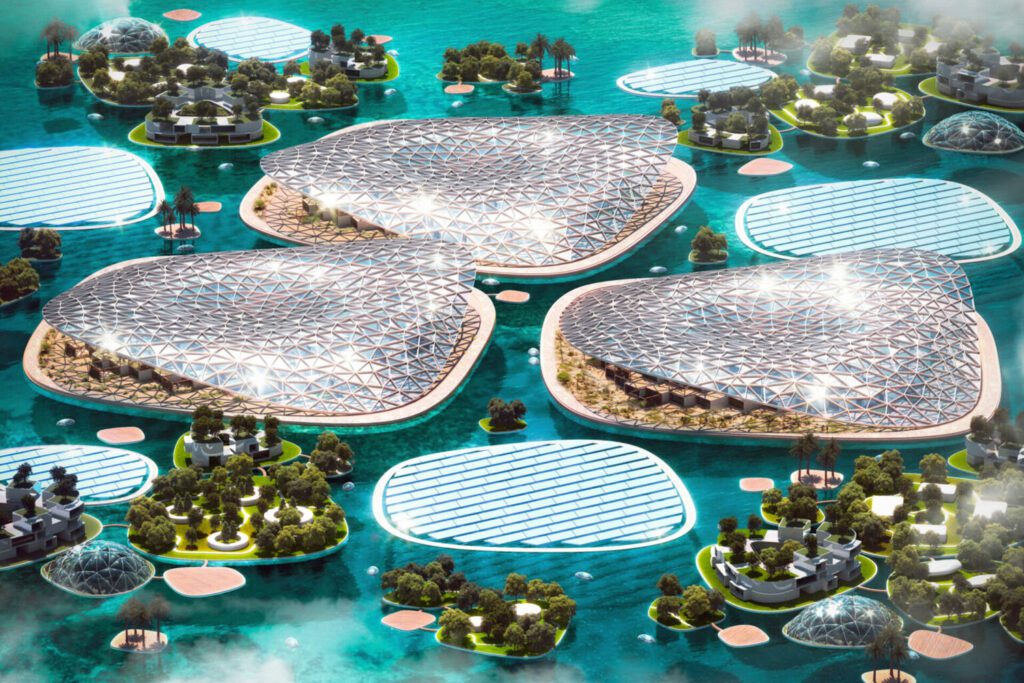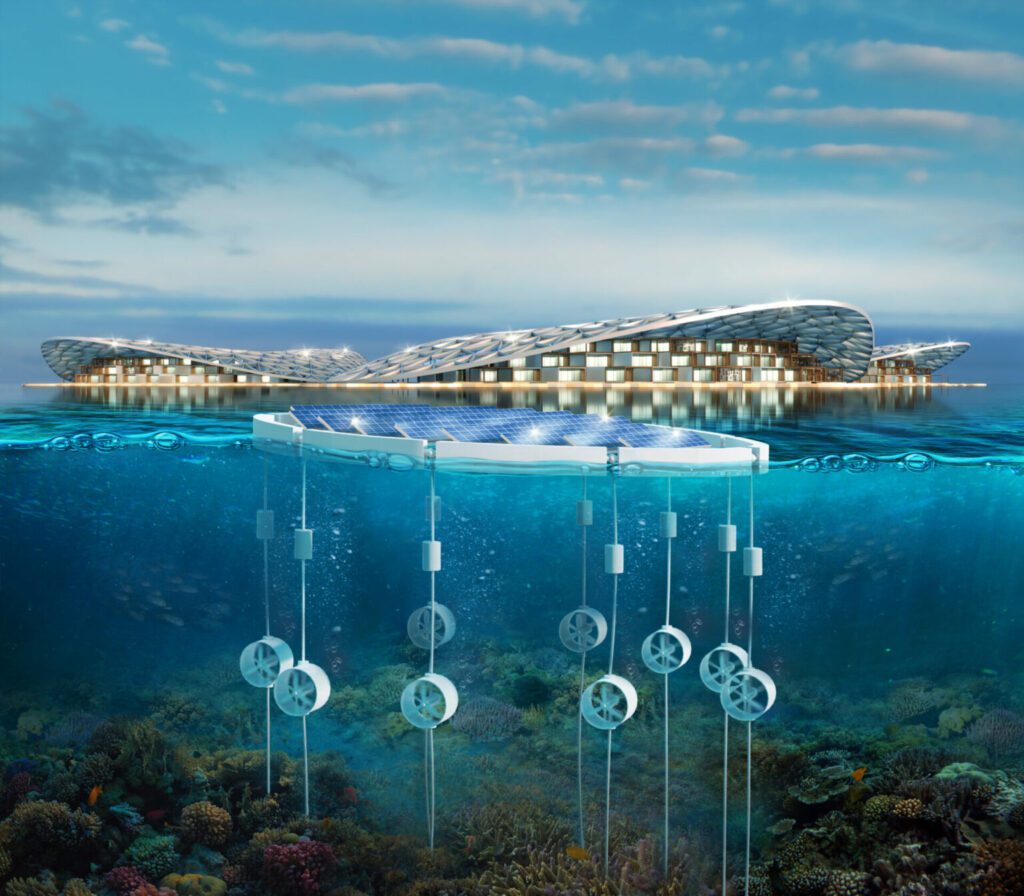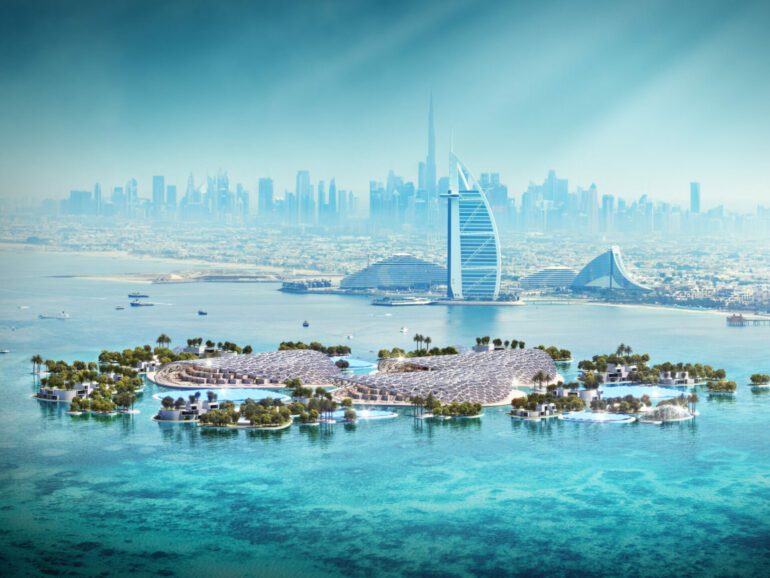TL;DR:
- URB launches Dubai Reefs, the world’s largest artificial reefs project.
- Dubai Reefs aims to preserve marine ecosystems, advance marine science, and promote sustainable practices.
- The project includes residential areas, hotels, stores, education facilities, and research institutes.
- Dubai Reefs will enhance coastal ecosystems, provide storm protection, and offer habitat for wildlife and fish.
- The Marine Institute within Dubai Reefs will construct the world’s largest artificial reef, spanning 200 square kilometers.
- The project incorporates sustainable energy sources, regenerative ocean farming, and a global ocean cleanup campaign.
- Cutting-edge technologies like 3D printing and artificial intelligence will be utilized in its development.
- Dubai Reefs seeks to become a sustainable eco-destination and a model for ocean living.
Main AI News:
In a groundbreaking move towards environmental conservation, URB has launched “Dubai Reefs,” a revolutionary endeavor aimed at preserving marine ecosystems, advancing marine science, and fostering sustainable practices in Dubai. This visionary initiative, often referred to as the “world’s largest ocean restoration project,” will encompass residential areas, hotels, retail establishments, educational institutions, and research centers, further augmenting the city’s portfolio of awe-inspiring megaprojects.
The ocean, the cradle of life, holds an indomitable influence over our planet. Recognizing the intricate interdependence between a thriving ocean and a flourishing city, URB spearheads a transformative mission to safeguard the marine realm before the turn of the century. Leveraging Dubai’s innovative coastal cityscape, the ambitious Dubai Reefs project aspires to transcend the boundaries of conventional development, emerging as a resilient ecotourism hub and a mecca for marine research. In its pursuit of harmonious coexistence between the city and the ocean, Dubai Reefs endeavors to establish itself as a blueprint for sustainable oceanic living while mitigating the adverse effects of climate change. By championing this noble cause, Dubai aims to unlock an array of social, environmental, and economic benefits, thus transforming itself into a beacon of sustainability.

Source: ParametricArchitecture
At the core of the project lies the objective of enhancing Dubai’s coastal ecosystems through a comprehensive mitigation strategy. Coastal ecosystems, teeming with diverse flora and fauna, act as vibrant transitional zones between land and sea. These sea forests, flourishing with verdant vegetation, play a vital role in regulating the Earth’s temperature. Unfortunately, Dubai’s coast has endured significant disruption over the years due to oil drilling, dredging, and reclamation projects. The Dubai Reefs initiative seeks to reverse this trend by revitalizing the coastal ecology and fortifying the shoreline against storms, all while providing a sanctuary for wildlife and marine life.
Central to Dubai Reefs is the creation of the world’s largest and most diverse artificial reef, spanning a staggering 200 square kilometers (77 square miles). At its epicenter lies a pioneering marine institute dedicated to advancing marine science and conservation efforts. This monumental undertaking aims to foster the growth of over one billion corals and one hundred million mangroves, encompassing an area larger than 37,000 conventional football fields. Moreover, the floating eco-lodges within Dubai Reefs will harness the power of sustainable hydro, solar, and wave energy, offering a truly unparalleled eco-tourism experience. The project also includes regenerative ocean farming and a global campaign led by the Marine Institute to rid our oceans of the scourge of 5.25 trillion plastic particles. Embracing cutting-edge technology, Dubai Reefs incorporates artificial intelligence for monitoring, optimization, and programming, along with the utilization of 3D printing and Biorock methodologies.




Source: ParametricArchitecture
The integration of 3D printing revolutionizes the creation of artificial reefs, allowing for the formation of intricate shapes and textures that closely emulate natural underwater landscapes. This pioneering technique enables the reefs to seamlessly blend into their surroundings, resembling authentic ecosystems. Furthermore, the institute’s comprehensive research portfolio encompasses the exciting realm of bioprinting. By developing 3D-printed biomaterials capable of supporting living microalgae akin to corals, researchers are on the cusp of a breakthrough in the conservation of marine life.
In addition to its ecological endeavors, Dubai Reefs introduces the “blue carbon” carbon offset program, empowering businesses to reduce their carbon footprints by cultivating mangrove trees along the coastline. Recognizing the imminent rise in sea levels and the potential emergence of floating cities in the coming decades, Dubai Reefs is more than a testament to blue urbanism—it is an exceptional eco-destination that champions the well-being of both humans and the environment.




Source: ParametricArchitecture
Conclusion:
URB’s Dubai Reefs project represents a significant milestone in the market, signaling a growing emphasis on sustainable practices and environmental conservation. By combining ambitious development with ecological restoration, Dubai Reefs sets a new standard for future coastal projects. The integration of advanced technologies, such as 3D printing and artificial intelligence, showcases the potential for innovation in the industry. This venture not only positions Dubai as a leader in sustainable urbanism but also creates opportunities for businesses in the marine science, eco-tourism, and renewable energy sectors. As the world’s largest artificial reefs project, Dubai Reefs holds the promise of fostering a healthy marine environment while demonstrating the economic viability of sustainable initiatives.

